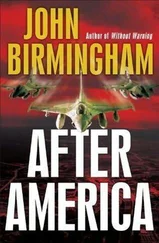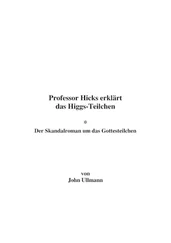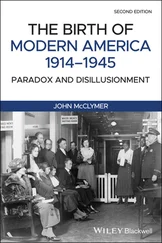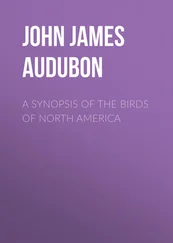He had thought that the crossing would be short: a series of long, smooth pulls that would take no more than a couple of minutes. Instead, he found that a second telephone cable was suspended from the first, and the hoops that attached it every 10 inches or so got caught in his hands and feet. Swinging wildly, he struggled for every inch. After about 50 pulls he was exhausted, and physically couldn’t move any further. He was still no more than a third of the way across, hanging over the patrol road a good 20 yards from the fence. Leary hung on to the wire for dear life, sweating, panting and hurting, the 20-foot drop below seeming like an abyss. He was too old for this, he realised. It was just a month before his fiftieth birthday and his body simply wasn’t up to it. Why hadn’t he given up smoking, or worked out more? Was this why no one had ever escaped this way? Perhaps the wire had been placed there as a trap, as a joke by guards who were laughing at him even now through the scopes of their rifles? He glanced down and saw inmates sitting around in the TV room. Then he was lit up in a sudden glare of light.
A patrol car had appeared around the corner. He could see the blue of his denim sleeve turning yellow in the headlights. Slowly the car came towards him along the tarmac road. It passed underneath him. He looked down and could see the guard extinguishing a cigarette in the ashtray.
The car kept moving. He hadn’t been seen.
Then, from somewhere deep inside him, there erupted an enormous surge of energy. He was no longer thinking rationally, but his body was working, his arms and legs moving desperately. He was fixated on the fence. If he was shot, then he wanted to fall on the other side of the fence. At some point he was aware of his glasses falling away, but his limbs kept moving. ‘I wanted Errol Flynn,’ he later wrote, ‘and came out Harold Lloyd.’ 5 Then his fingertips touched the wood of the telephone pole. He grabbed the metal stakes at the top of the pole with both hands, before letting go of his legs and swinging down and around to the far side of the wood. It was a move he had practised many times on the end of his bunk. He half climbed, half slid down the pole and lay in the grass, still and panting, watching the lights of the prison that now lay behind the fence. The camp was quiet.
Then he spotted his spectacles glinting in the grass, lying just a few inches from the free side of the fence. He retrieved them and adjusted them on his nose with what he called his ‘funny professorial gesture’. For a moment he had regained the Errol Flynn-like composure that was an integral part of his mental rehearsals of this escape. Then he completely lost it again as he turned to walk quietly down the bank away from the fence, slipped on a stone and tumbled down amongst an avalanche of rocks.
He ran though the dark, listening out for patrols, following a route from memory that Rosemary had described to him. Walls of illuminated prison windows watched him disappear across the open land, run alongside a dry creek bed and follow a small ditch past the main prison gate. He ran past the sign that announced ‘California Men’s Colony—West Facility’, and found the railroad tracks alongside Highway 1.
Awareness of his new freedom hit home as he ran at full speed along the highway, stopping only to hide in bushes when headlamps signalled the approach of a passing car. This short sprint triggered an ecstatic, almost animalistic feeling. Despite his difficulty on the telephone wire, he was in good shape for a 49-year-old man. He was six feet tall, with a bouncy way of walking that made him seem taller and physically more imposing than he really was, and his slender build was more characteristic of a tennis coach than an academic. At the time of his arrest his hair was starting to turn grey, which accentuated the classical aspect of his features. But while his face was aristocratic, his mannerisms were restless and American, and his eyes and smile had an unmistakably Irish charm. It was this subtle Irish glimmer that overrode the American and classical aspects of his appearance and became the prominent characteristic in the memories of those who knew him. His reckless Irish streak could also be relied on to override the other elements of his personality at pivotal times in his life.
Moments later, he reached the three trees.
CHAPTER 2 The Children Will Grow up Wondering about Their Mother
Timothy Leary’s arrest and imprisonment was not the first time that his love of forbidden substances had got him into trouble. His training at the prestigious West Point military academy in Massachusetts had also ended in such a fashion. On that occasion the substance in question was whisky.
Leary had been excited and a little overawed when, on 1 July 1940, he was accepted into the American armed forces. He was 19 years old, and war was engulfing the globe. West Point was steeped in the pageantry of American military history, and the sense of theatre created by the parades, flags and uniforms really appealed to him. But as soon as the need to conform began to be drilled into him, his doubts started to surface.
The physical side of the army wasn’t a problem. He completed the toughest part of the training without difficulty. This was ‘Beast Barracks’, or army basic training done in half the time to make it twice as hard. What was problematic, however, was the requirement to unthinkingly obey his superior officers. Tim’s interest lay in battlefield strategies and military history, and when he joined the army he had thought that it would be an essentially intellectual career. He hadn’t seemed to realise that he would initially be trained to disengage his intellect and simply do as he was told. With hindsight, it is difficult to see how Tim ever thought that he would be suitable for the army. In later years he would sum up his philosophy with the words, ‘Think for yourself. Question authority’ In the military an attitude such as this could get a soldier and all his squadron killed.
Another problem was the monastic conditions that the new cadets lived in. Opportunities for meeting girls were almost non-existent. Their best chance of doing so was when attending sporting events, because they were allowed a few hours of free time between the end of the event and the return to barracks. On the day that the sporting season came to an end, the cadets knew that they needed to make their last opportunity count. Following the army–navy football game in Philadelphia, 1 Leary and a friend managed to find a brothel. Feeling magnificent and indestructible when he left, Tim bought four half-pints of whisky He ended up sharing these with the senior cadets in the toilets on the troop train home. This was a terrific honour, for the strict class system at the academy usually forbade the first years, or ‘plebes’, from speaking to the senior first classmen.
Leary’s involvement in this illicit drinking session was immediately obvious the following day, when he missed the morning reveille formation. Too hung over to attempt anything, he failed to make it out of bed. He readily admitted to the drinking, but did not offer the information that he had supplied the alcohol. When this was discovered, the Honour Committee decided that he had lied to them. They requested his resignation.
How should he respond? Tim knew that resigning from West Point would be a huge disappointment for his mother. But, more importantly, he felt that the Honour Committee was wrong. He had not lied; he had simply not told them the whole truth. Others considered that this was splitting hairs, and that his statement had still infringed the ethical code of the Honour system. Tim, however, was a man who was almost incapable of accepting blame, and he clung to this detail as proof that he had behaved ethically. He announced that he would not be resigning.
Читать дальше












